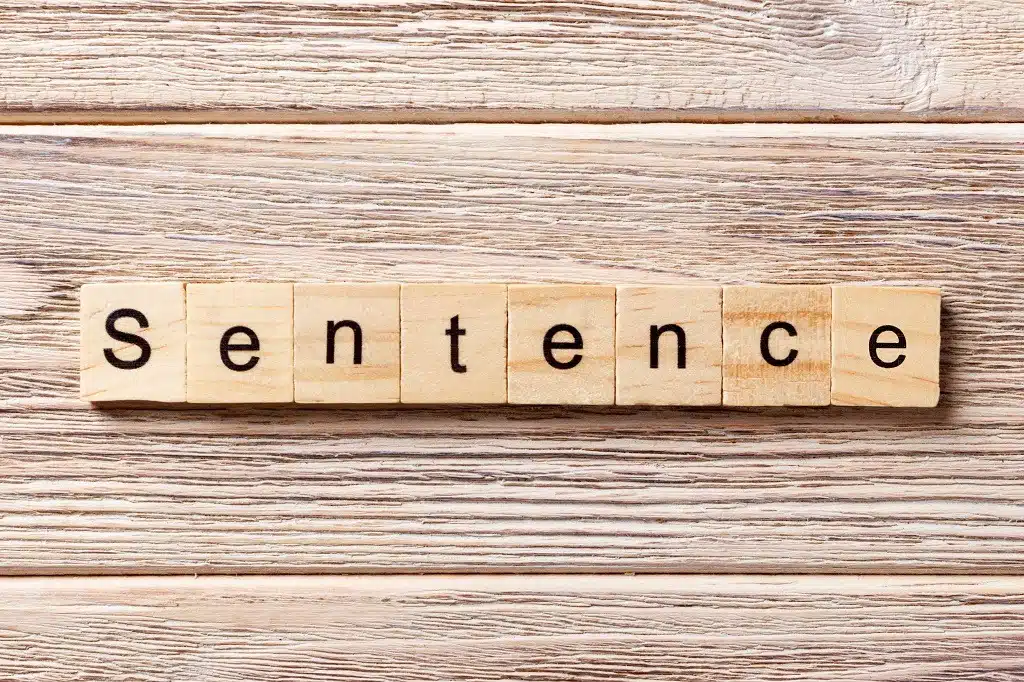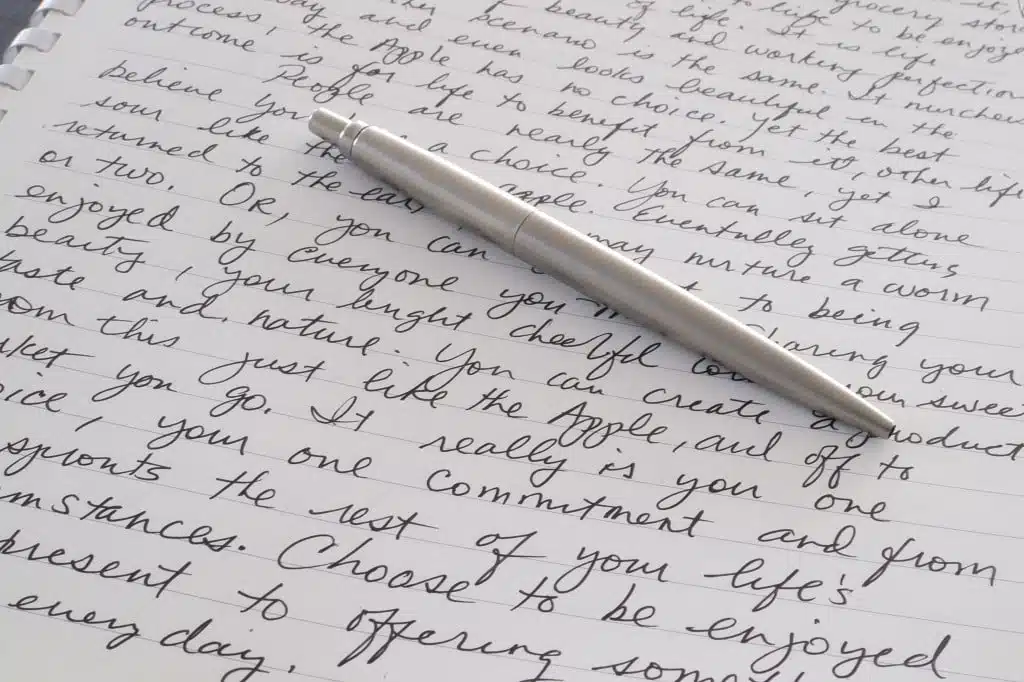Here’s the difference between a periodic sentence and a loose sentence:
A periodic sentence leads up to the main point (the independent clause).
A loose sentence starts with the main point instead.
If you want to know all about the differences between a periodic and a loose sentence, then you’ve come to the right place.
Read on!

What Is the Difference Between a Periodic Sentence and a Loose Sentence?

| Periodic Sentence | Loose Sentence | |
| Sentence Structure | Complex | Complex |
| First Clause | Dependent | Independent |
| Last Clause | Independent | Dependent |
| Tonal Effect | Suspenseful | Trails off |
| Intent | Emotional | Informative |
Periodic and loose sentences differ primarily in their syntax.
A periodic sentence leads up to the main point (the independent clause) while a loose sentence starts with the main point instead.
This reversal is important and has a big impact on how the sentence ultimately plays out.
All periodic and loose sentences are complex.
They cannot be simple, since simple sentences don’t have dependent clauses, and cannot be compound since they only ever have one independent clause.
Periodic and loose sentences are fairly advanced terms compared to other grammar vocabularies since you need to understand what a complex sentence is, what clauses are, and what syntax is.
As such, this article will begin with a crash course in these foundations.
If you are already familiar with the types of clauses and four-sentence structures, then feel free to skip ahead to the section labeled “How are Periodic Sentences Used?”
What Are Independent and Dependent Clauses?

An independent clause is a clause that could functionally be a sentence on its own.
Every sentence naturally has an independent clause containing a subject and a verb, which expresses a complete thought.
This is typically the main point of the sentence.
The confusion comes mainly from dependent clauses.
A dependent clause is a clause that could not be a sentence if it stood on its own.
This can be either because it does not contain a subject or a verb, or because it starts with a preposition that implies the thought is incomplete on its own.
Dependent clauses with no independent clause become sentence fragments, which really just means “an incomplete sentence.”
The positioning of these clauses in a complex sentence is what constitutes the difference between a periodic sentence and a loose sentence.
What Are the Main Sentence Structures?

Periodic and loose sentences are complex sentences.
They can’t be simple or compound, by the nature of their definition.
In order to understand what that actually means, let’s quickly look at some examples of the different sentence types.
Simple sentences are comprised of a single independent clause and nothing else.
Due to their ease of use, they’re generally the first thing taught to children.
- “The boy has a dog.”
- “The girl loves to walk.”
- “She moved out.”
Complex sentences utilize one independent clause and at least one dependent clause.
They may or may not have a comma, depending on how prepositions are used.
- “The boy has a dog and a cat.”
- “The girl loves to walk, but only on Tuesdays.”
- “While it was raining, she moved out.”
Compound sentences feature two independent clauses.
This is a relatively uncommon sentence type since it’s sometimes more effective to divide them into two separate sentences.
- “The boy has a dog, and his dog is fat.”
- “The girl loves to walk, but she only loves to walk on Tuesdays.”
- “It was raining, and she moved out.”
Compound-Complex sentences have at least two independent clauses and at least one dependent clause.
If you’ve ever been accused of writing a run-on sentence, it was likely a compound-complex sentence.
- “The boy has a dog and a cat, and his dog is fat.”
- “The girl loves to walk, but she only loves to walk on Tuesdays if it’s nice out.”
- “It was raining, and she moved out, but not before breakfast.”
How Are Periodic Sentences Used?

Periodic sentences, in which the independent clause is at the end of a complex sentence, tend to have a sense of impact and completeness to them.
The dependent clause (or clauses) preceding the independent clauses can create a small sense of suspense.
It’s like the “big reveal” in some narratives, but on a much smaller scale.
Examples of periodic sentences:
- “Even though he had never seen her, he loved her instantly.”
- “There in the doorway, grinning with blood-soaked teeth, the werewolf waited.”
- “Once upon a time, in a faraway land, there was a princess with really ugly bangs.”
Take note that the impact of a periodic sentence also varies depending on how you handle the reader’s expectations.
In the third example (“Once upon a time…”) the reader is expecting a typical fairytale setting of some kind. Subverting expectations can create humor.
On the other hand, building up the reader’s expectations and then matching them can make for a sentence that feels satisfying and cozy.
While the first example (“Even though…”) may not be revolutionary, it does immediately let the reader know what they can expect from this story.
There is nothing inherently good or bad about how you handle the reader’s expectations.
Always meet them, always subvert them, or play them like a rollercoaster if you want to.
The important thing is that you’re always thinking about what effect your words will have.
How Are Loose Sentences Used?

Loose sentences start with the independent clause and then trail off into dependent clauses.
There’s a bit of instant gratification involved, and these sentences tend to feel natural and easy for the reader to digest.
Whereas the periodic sentence builds up expectations, the loose sentence allows the reader to relax and absorb information instead.
If periodic sentences are evocative, then loose sentences tend to be informative.
Examples of loose sentences:
- “He hated his boss, in every conceivable way.”
- “The sunflowers were growing, although it had taken awhile.”
- “The mouse had gotten away again, but not for long.”
In many cases, a loose sentence simply gives you the baseline information, then expands on it for emphasis or to establish information that modifies the meaning of the independent clause in some way.
The first example (“He hated his boss…”) is an example of a loose sentence being used for emphasis.
The dependent clause isn’t necessary, but it does clarify that the hatred is more pronounced than might have otherwise been implied.
Take special note of the third example (“The mouse had gotten away…”).
In this example, the syntax is used to complicate the message of the sentence, creating an unanswered question.
Saying “but not for long” allows us to invoke some light foreshadowing that will spill over into future sentences.
